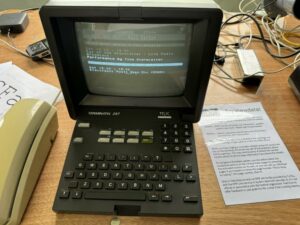Hip Hop is not only a style of music, but also the name of a virtual machine written by Facebook which compiles PHP Just In Time to make it go quickly.
Now we receive lots of unsolicited advice about how to run a not very popular wordpress blog and cope with the volume of traffic. Usually this involves ripping and replacing the entire infrastructure from a standard Linux/Apache/MySQL/PHP stack to something different (Nginx/MariaDB/PostgreSQL) which may not even be able to run WordPress at all (e.g. node.js).
At Mythic Beasts we like to understand what we’re doing, rather than blindly installing Magic Go Faster Solution Number 7. So we set up a test 2GB dual core virtual machine, that runs WordPress and a selection of popular plugins ( WordPress SEO, Akismet, Safe Report Comments, Liveblog, Facebook, Yet Another Related Posts Plugin, WordPress Supercache and Jetpack, no endorsement implied). Then we benchmarked with siege and managed the following results.
Apache/mod_php : 5.10 trans/sec
and when you turn supercache on and serve cached pages you get
Apache/mod_php/supercache : 873.50 trans/sec
So this gives us two scenarios, pages which we have to generate content for which can easily cause load issues, and pages served from supercache in which our VM is fast enough for all practical purposes and will easily weather even very big traffic spikes from news websites or television adverts.
Now, it’s very popular to tell us to use Ngnix as it’s faster than Apache. Is it though?
Nginx/php-fpm: 5.70 trans/sec
Nginx/php-fpm/supercache: 2230.58 trans/sec
Wow! Nginx is three times quicker than Apache at serving cached pages. This is amazing, but not very helpful. It means when our webserver is serving pages really quickly, we serve pages at three times really quickly, but when we’re generating pages on demand, it’s about 10% quicker. That’s not very special and doesn’t justify a rip and replace of the whole installation for a 10% performance improvement.
A quick look at the VM during the testing tells us that the bottleneck is executing the PHP code which creates WordPress pages. The choice of webserver is basically irrelevant; almost all the server time is spent executing PHP and reading data from the database.
Enter HipHop Virtual Machine.
This is nothing to do with the HipHop Virtual Machine. But we like tea and Banging Tunes
It has one focus, to execute PHP quickly for Facebook. Facebook have a lot of servers and spend hundreds of millions to billions per year on servers and data centres. A 50% performance improvement in PHP saves them huge sums of money in data centres and servers alone, so it’s clearly worth them trying to optimise as much as possible.
Here’s what happens with Apache/Nginx running HHVM.
Apache/HHVM : 35.93 trans/sec
Apache/HHVM/supercache: 928.70 trans/sec
Nginx/HHVM : 33.78 trans/sec
Nginx/HHVM/supercache : 2137.67 trans/sec
This is a huge improvement for non cached pages – seven times faster. Cached pages are bottlenecked in the webserver so it makes minimal difference, but they were already so fast we weren’t worried about them. Again Apache/Nginx are still pretty much the same speed for generated pages, we’re still dominated by the code execution time but a seven fold performance improvement is worth seriously considering.

Whilst we can reconfigure servers standing on our heads, we usually don’t.
Photo credit: Mark Dolby, Flickr, CC-BY.
All I need to do now is see if I can find someone with a very busy WordPress site and a million complaining users who would like to test it to see if it’s really as good as the lab tests suggest it might be.
Very sorry to hear the news that Big Bank Hank who co-wrote the first ever hit Rap track Rappers Delight died earlier this week from kidney complications related to cancer.
You see, he was six foot one, and he was tons of fun







